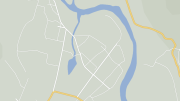Google Chairman Eric Schmidt’s message on the importance of embracing the Internet was “well received” in Pyongyang, according to Bill Richardson, a former governor of New Mexico.
Richardson, writing in The Washington Post on Friday, invited Schmidt to accompany him on a private trip to North Korea in January. During the trip, the delegation met with senior North Korean officials.
During our visit, Eric Schmidt, the co-leader of our delegation and the executive chairman of Google, spoke about the advantages of adopting the Internet and increased mobile technology. His message was well-received by officials, scientists and students. — “Time for a Reboot with North Korea,” Washington Post, February 1, 2013.
Richardson’s message came with a kicker:
But economic development, access to technology and progress don’t go together with nuclear threats. These threats lead to increased isolation, decreased international aid and freezes in technological progress. — “Time for a Reboot with North Korea,” Washington Post, February 1, 2013.
The editorial spends most of its time dealing with North Korea’s recent threats to test a nuclear weapon and the positive diplomatic steps it could be taking to better relations with its neighbors. Schmidt’s Internet message isn’t mentioned again, but I though it was worth highlighting as it’s one of the few things written about the trip.
The only other information came in a blog post from Schmidt himself and one from his daughter, who also accompanied him on the trip.
Of those two accounts, perhaps the most interesting was Sophie Schmidt’s interpretation that the arrival of wider Internet access in North Korea is inevitable:
They seemed to acknowledge that connectivity is coming, and that they can’t hope to keep it out. Indeed, some seemed to understand that it’s only with connectivity that their country has a snowball’s chance in hell of keeping up with the 21st century. But we’ll have to wait and see what direction they choose to take. — Sophie In Korea, Google Sites, January 2013.
Of course, Internet access doesn’t mean it will necessarily be free and unfiltered. North Korea spends so much time and effort trying to keep foreign information sources from penetrating the country, it’s almost unthinkable that unfettered Internet access would appear anytime soon.
Much more likely is an expansion of the controlled access to areas where the government sees economic benefit: business, academia and transmission of propaganda from the country to the rest of the world.
As for Google, a likely first step would be the hosting of North Korean computer scientists as its campus in California for some sort of training or academic program.





